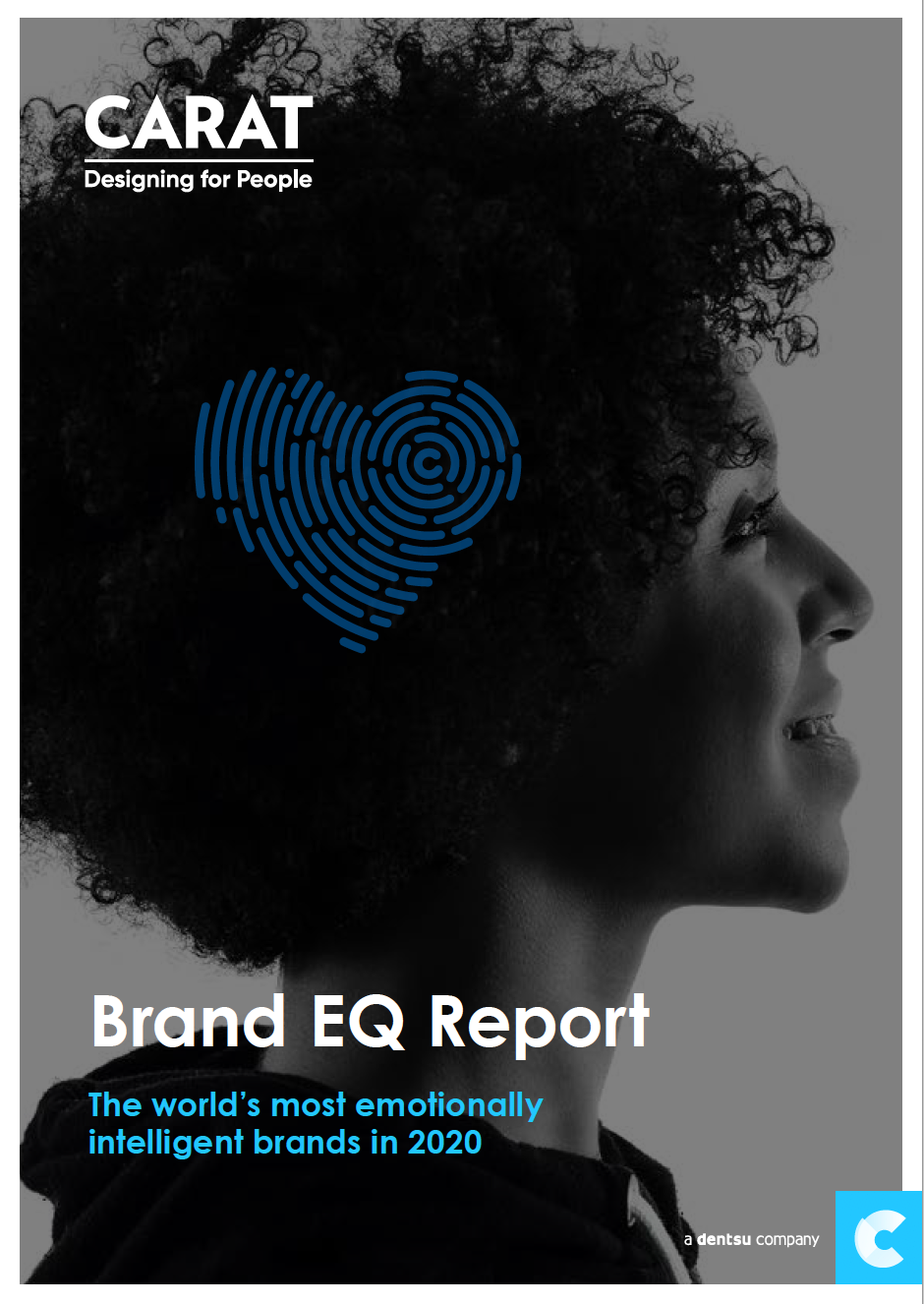Carat Launches the Brand EQ Index as the Agency Continues Its Pivot to Human
- Carat launches global Brand EQ Index, breaking down the emotional intelligence and connections of the world’s top companies
- This is the first piece of major research associated with Carat’s revamped, human-centric, brand identity.

Carat, today announced the launch of The Brand EQ Index, a proprietary piece of research ranking and revealing the most emotionally intelligent brands across the world. Beginning in March 2020, Carat surveyed 10,000 people about their perceptions of 48 globally known brands in five categories: retail, food & drink, technology, automobile and financial services. Respondents in 10 markets evaluated how well they think brands are doing in different areas of emotional intelligence: empathy, self-awareness, social skills, internal motivation, and self-regulation. Given the state of active state of change during this evaluation period, the raw results draw from deep introspection on behalf of the survey’s participants.
"The EQ Index brings a different lens to an age-old question: 'What are the traits of the most successful brands?' As our world becomes more technical and more complex, it can sometimes be incredibly insightful and rewarding to bring a fresh human perspective to help explain the world. Applying the psychology of emotional intelligence is one of the ways we can design more rewarding experiences for people with brands. More than ever, marketing is a business rooted in human understanding and designing for people."
Terrence Young, CEO of dentsu China Media service line said: ”At Carat, we are firm believers that more human understanding builds better relationships and makes the world a better place. That is true for both people and brands. The better they both understand each other, the more value both parties can enjoy from the experiences they share. We call this philosophy and approach Designing for People – and it sits at the very center of our brand. We focus on building experiences out from a position of empathy. This report comes as the media agency reintroduces its brand to be more aligned with Carat’s human-centric values and execution methods. While metrics and data continue to be a core piece of the equation, Carat has always believed in the human element when evaluating and establishing connections between its clients and their audiences. The Brand EQ Index is a personification of this belief and demonstrates the value of building emotional bonds with audiences, something an algorithm simply cannot do at scale. I believe that this report is valuable for all brands.
Key Findings Include:
- Technology and innovation do have a human face - one of the clearest findings of this study is the close relationship between ‘human outcomes’ and the importance of technology for a brand. If we look at the top 20 scorers, eight are heavily oriented around digital technology and innovation, whether that is in a ‘pure’ way (Google & Microsoft) or by redefining the way we purchase (Mastercard & Visa). This flies in the face of much of what has been argued by experts concerned with the de-humanising effects of tech.
- Technology brands dominate the top and the bottom. Google is the world's most emotionally intelligent brand in 2020. Microsoft, Samsung, Amazon and Apple also made it to the top 10.
There is a strong correlation between high Brand EQ and financial performance. Over the past ten years, the average share price of the 20 most emotionally intelligent brands outperforms brands with a lower EQ by hundreds of per cents. High EQ brands also outperform key stock indices such as the Standard & Poors 500 and Dow Jones 30 by over 500 percentage points over the past decade.
- Not all tech firms excel at EQ: Facebook and Uber are among the least emotionally intelligent brands. Their poor performance is driven primarily by the lack of trust. Only 40% of respondents believe that Facebook behaves with honesty and integrity. For Uber, the figure is 37%.
- The most emotionally intelligent category is retail. Adidas, Nike, and Amazon reached top positions. Automotive and financial services brands have weaker-than-average emotional intelligence.
The report, which can be found on Carat’s revamped website, also dives deep into key learnings for brands, ranging from how they can engage younger audiences to how they should use their EQ chops to build trust with consumers. The Brand EQ Index is the first in a series and will be built upon in the coming months.
‑ ENDS ‑
For further information contact:
Robert Schwartz
Global CMO, Carat
